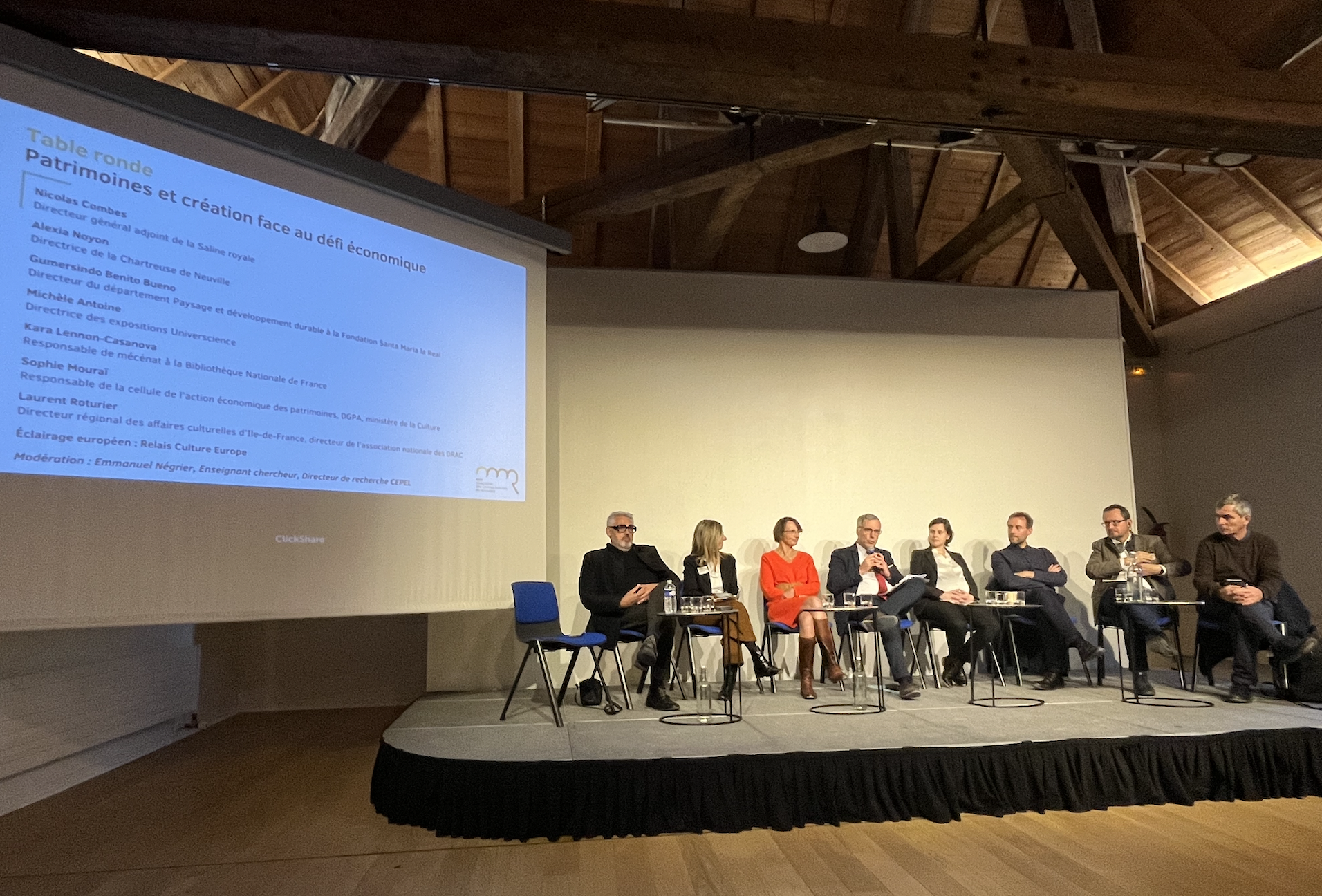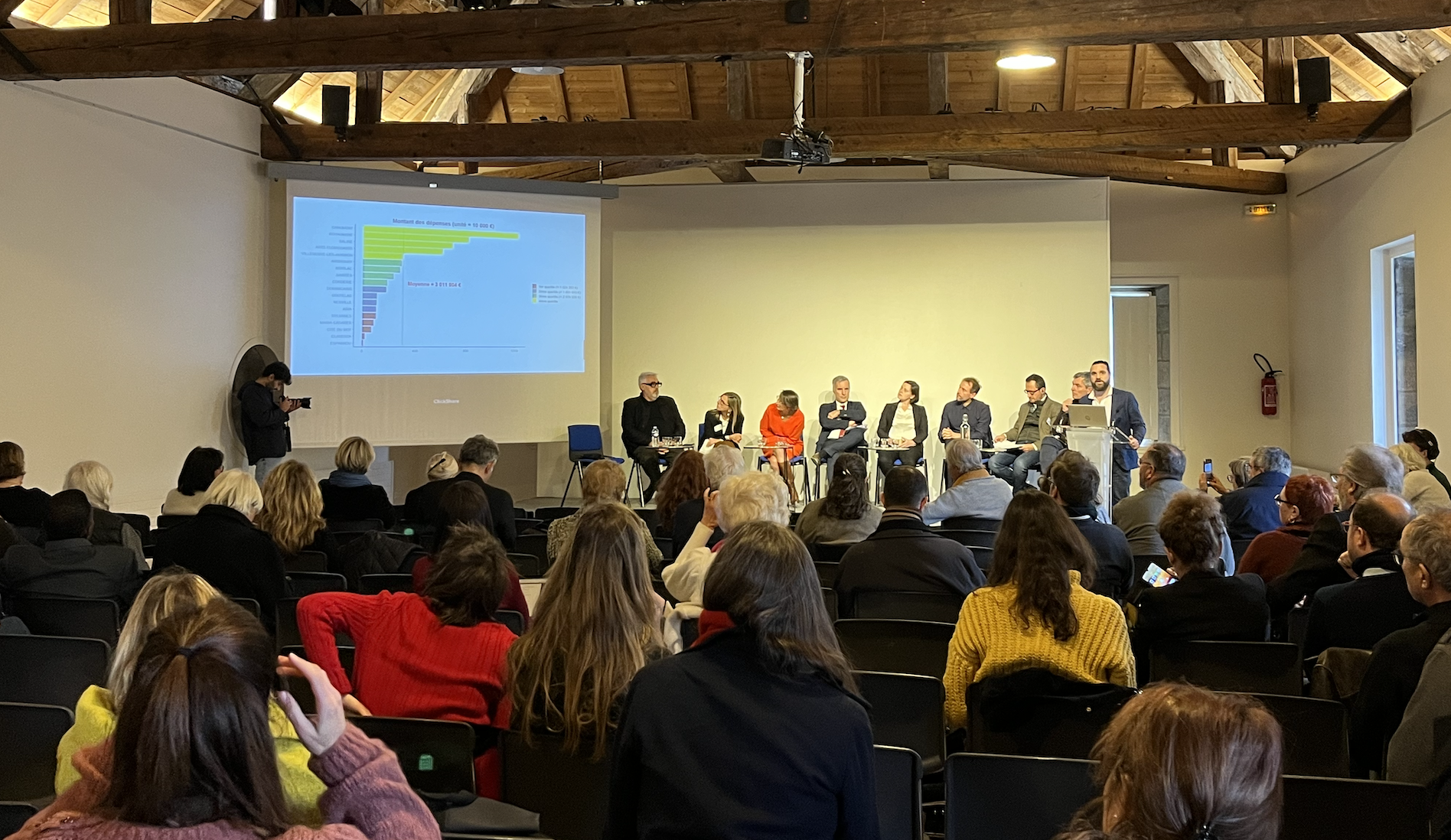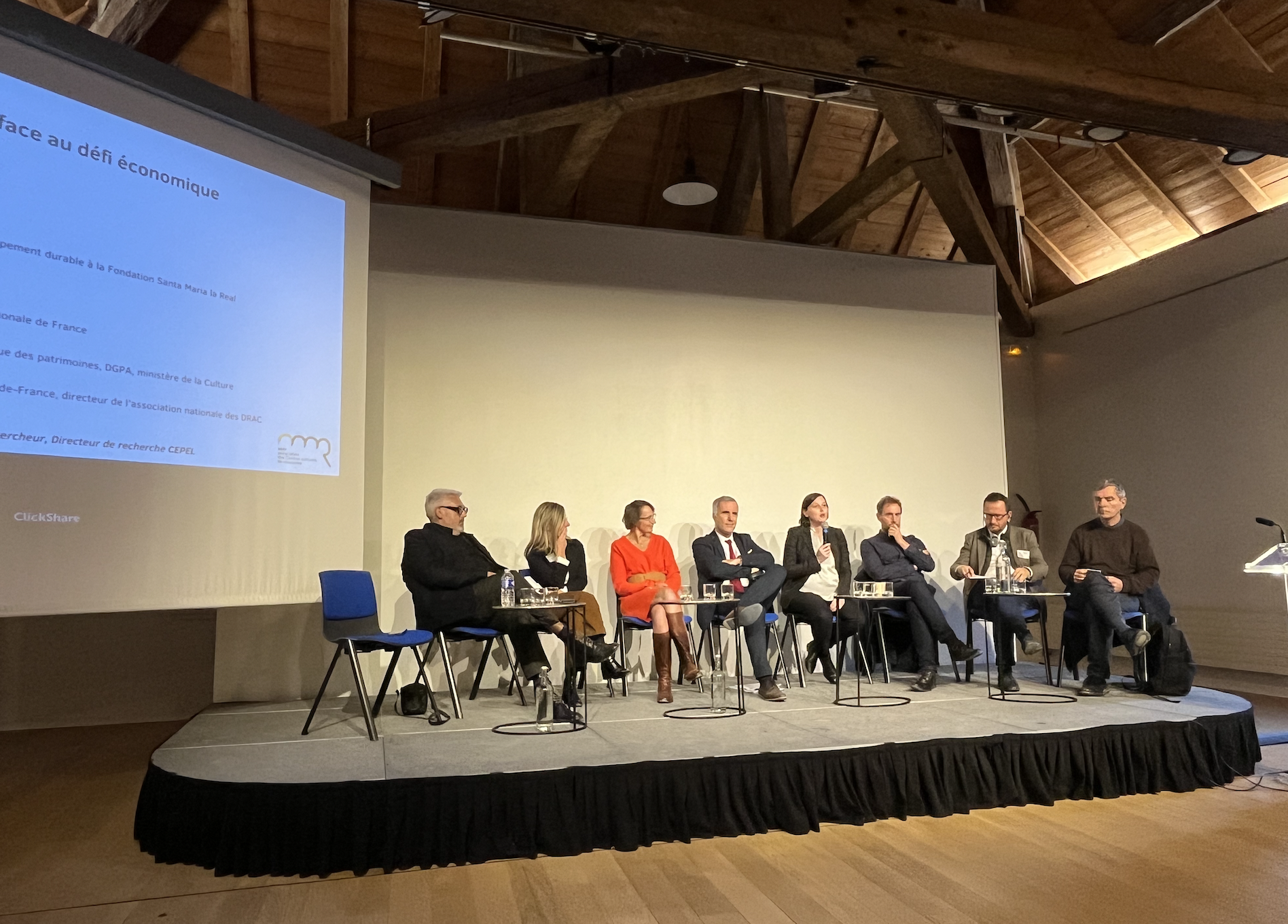On the occasion of the ACCR's 50th anniversary, the association organised the European meetings "Heritage and creation faced with contemporary transitions" at the Saline Royale d'Arc-et-Senans from 16 to 18 November 2023. Culture was questioned in the light of the three major contemporary challenges identified: climate change, the challenge of renewing the link with the public and the economic challenge.
The economic challenges as experienced by the CCRs were the subject of a round table discussion on Thursday 17th, moderated by Emmanuel Négrier, Director of Research at CEPEL (Centre d'Études Politiques Et sociaLes).
The round table, entitled "Heritage and creation faced with the economic challenge", shed light on the evolution of the CCR economic model over the past 50 years: the successes and failures of the model, day-to-day experimentation with the concept of hybridisation of resources, etc. It also looked at the contribution of CCRs to the dynamics of local areas and the alliance between the State and local authorities in regional planning.
/Initial feedback on the CCR observatory
In 2023, the ACCR carried out a qualitative and quantitative survey of French CCRs to highlight the originality and dynamics associated with this label. The aim was to consider their organisational, sociological and political dimensions. This made it possible to understand their methods of action and organisation, their ecosystem, to analyse the effects of the project and the evolution of cultural practices, to report on the effect of the label and the network, while highlighting the contribution of the CCRs to territorial policies and analysing the issues facing those involved in the CCRs.
This study was carried out jointly with the teams at CEPEL and the University of Montpellier. The round table opened with a presentation of the initial results of the survey. A full review is planned for 2024.
In particular, there was a general decline in own resources from space rental and the hotel business. On the other hand, income from ticket sales has risen significantly.
/CCRs & local roots
The strong link between CCRs and their local area was emphasised, whether through the creation of a specific landscape, listening to local needs and responding appropriately, or contributing to the local economy.
On this last point, the example of the Saline Royale was given: creation of a pool of jobs, financial spin-offs for the region, creation of partnerships with local businesses, etc.
In the regions, the CCRs are seen as places open to debate, like a trusted third party. They are cultural venues that draw their inspiration from the local area and offer their own cultural offerings that reflect both the history of the site and, more broadly, its immediate environment. This means that they are strongly rooted in the local area, rather than rural outposts of metropolitan cultural venues or programmes, which exacerbate a feeling of abandonment and a denial of the creative force and capacity for innovation in these areas.
/Hybridisation of resources
CCRs seek to strike a balance between their own resources (ticket sales, shops, space rental, catering and hotel services, etc.), sponsorship and partnership strategies, and grants from public funding, which in turn require them to juggle very different levels of cooperation. This diversity is a strength of the CCR model, in that the more diversity an ecosystem demonstrates, the more resilient it is.
Echoing this dynamic, Michèle Antoine, Director of Exhibitions at Universcience (Cité des sciences et de l'industrie-Palais de la découverte), presented a report entitled Dix orientations pour hybrider les ressources économiques des lieux culturels (Ten guidelines for hybridizing the economic resources of cultural venues). The report is the fruit of the work of group 4 of the Cycle des Hautes Études de la Culture (CHEC), session 2021-2022. This cycle of reflection focused on the issue of "Reconfigurations: staying the course and inventing in times of upheaval".
Other avenues to explore were mentioned, such as site subscriptions, which are still uncommon in France. This loyalty-building tool could prove to be an additional lever to be exploited to broaden the range of our own resources.



